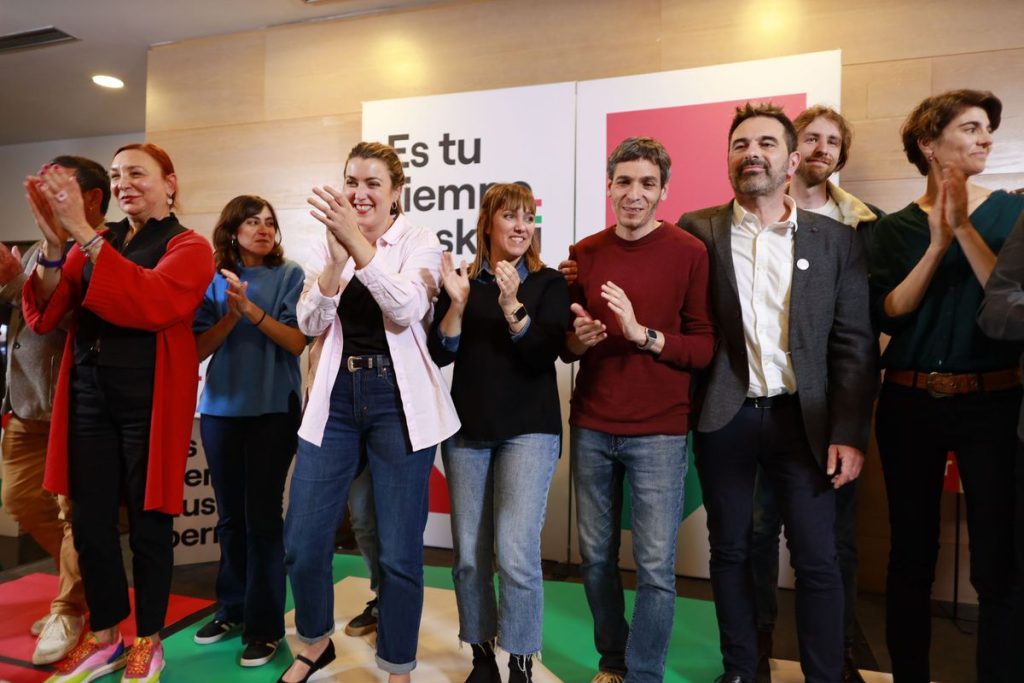Sumar survives in Euskadi after a close call. With only 3.3% of the support and a single deputy in the Basque Parliament, who wasn’t even their candidate for Lehendakaritza and belonged to Izquierda Unida, Yolanda Díaz’s platform breathes a sigh of relief before the European elections, facing a plummeting Podemos, which ultimately fell short with a mere 2.3%. Despite the vice president narrowly escaping defeat, the results confirm the collapse of the left-wing space in the region, which previously had six seats in 2020 but is now weighed down by the rise of EH Bildu, vote fragmentation, and internal fractures. The left’s decline in Galicia sets Podemos on shaky ground leading up to the decisive battle in June, exacerbating the internal crisis within Díaz’s coalition.
Following the disastrous results in Galicia, Sunday’s numbers leave Podemos in a delicate position for the upcoming pivotal election in June, highlighting internal rifts within Díaz’s coalition. With Sumar lacking visibility in the government and facing internal conflicts with IU, the vice president manages to secure an extension, but tensions persist. The exclusion of Sumar’s main candidate, Alba García, prompts a reevaluation of the strategy for the months ahead. Despite the challenges, the party remains committed to its progressive platform, aiming to work towards a progressive Basque Government.
The election results show a significant decline in the momentum that propelled the new left to become the leading force in the 2015 and 2016 general elections, fueled by the economic crisis, the 15-M movement, and the end of ETA, which allowed for a broader political agenda in the Basque Country. The meager outcome comes after a campaign overshadowed by the PNV and EH Bildu competition, where both parties, with minimal programmatic differences, found their positions weakened by the rising popularity of the left-wing Basque nationalist movement. Despite the predicted drop in support, the division penalizes both lists, losing around 13,300 votes compared to what they collectively received with a united candidacy in 2020. Yolanda Díaz limited her involvement in this election to only two interventions, distancing herself from a potential poor outcome that, in the end, was slightly salvaged, allowing her to maintain leadership within Sumar.
The decline in left-wing support comes just a month and a half before the European elections, a critical moment for Díaz’s party and Podemos’s future, which hinges on Irene Montero’s candidacy. Beyond the Euskadi-specific circumstances, these upcoming elections will reveal the true weight of each party and influence the future of Díaz’s project, which still faces unresolved issues with the parties it comprises. IU, resentful after being relegated to fourth place on the June 9th list, will decide this week whether to run on the joint ticket or separately. These elections also come just six days before Sumar announces its Executive Committee, entering a weakened position in the wake of a closely contested election, surrounded by uncertainties regarding the roles of other parties within the coalition.


